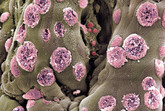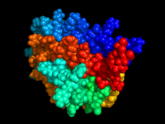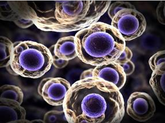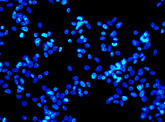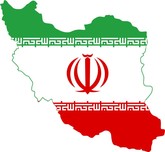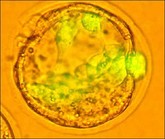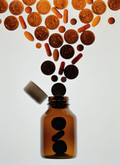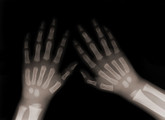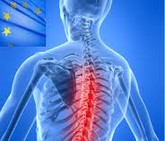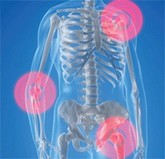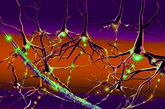Biosimilars/Research
Infliximab biosimilar comparable to Remicade
South Korean biotechnology company Celltrion presented results of its extended trials for its biosimilar infliximab candidate Remsima (CT-P13) at the European League Against Rheumatism (EULAR) 2013 Conference, which was held in Madrid, Spain on 12–15 June 2013.
Erythropoietin biosimilars in bone marrow transplantation and stem cell donation
Combination therapy with granulocyte colony-stimulating factor (G-CSF) and erythropoietin (EPO) has been used with the aim of accelerating the recovery of red blood cells following autologous bone marrow transplantation [1]. Previous studies have shown, however, that this practice has no significant effect on erythroid recovery and transfusional requirements.
Robust data for biosimilar trastuzumab programmes presented
Celltrion and Pfizer have presented robust data from their respective biosimilar trastuzumab programmes at the ASCO (American Society of Clinical Oncology) 2013 Annual Meeting held on 31 May to 4 June 2013.
Use of G-CSF biosimilars for reduction of fever
The American Society of Hematology, the British Society of Haematology, the European Society of Hematology and the European Group of Bone Marrow Transplantation all recommend the use of granulocyte colony-stimulating factor (G-CSF) after transplant in order to reduce the time to neutrophil recovery and the number of days with fever.
Positive post-marketing data for biosimilar epoetin
Injectable generics specialist, Hospira, presented results from a post-marketing study of the company’s European biosimilar epoetin (Retacrit) on 3 June 2013 at the 48th Annual Meeting of the American Society of Clinical Oncology (ASCO) held in Chicago, USA.
Use of G-CSF biosimilars for stem cell mobilization in autologous transplantation
The first biosimilar granulocyte colony-stimulating factor (G-CSF) was licensed by EMA in 2008, and there are currently six biosimilar G-CSF products licensed for use in the EU [1]. All of these biosimilars are also approved for haematopoietic stem cell transplantation.
Biopharmaceutical products in Iran
Iran will become a leader in biotechnology products (especially copied biopharmaceuticals [1]) in Asia over the next three years, according to a review by Mahboudi et al. [2].
Use of G-CSF biosimilars for stem cell mobilization in healthy donors
Granulocyte colony-stimulating factor (G-CSF) can be used to mobilize peripheral blood stem cells (PBSCs) in healthy donors. Over the last 10 years, the procedure has become the preferred option for donors compared to the donation of bone marrow.
Saving money in the European healthcare system with biosimilars
Biotechnology-derived medicines are increasingly popular for treating a range of conditions from cancer to autoimmunity, and yet they are among the most expensive healthcare products owing to their manufacture using live cell cultures. As healthcare providers become increasingly concerned about rising costs, interest is turning to the idea of substituting reference biological drugs with cheaper but similar biological products, or biosimilars, after patents expire on reference products. The use of biosimilars has the potential to reduce healthcare expenditure, particularly for long-term treatments, which incur high annual treatment costs.
Development of biosimilars for rheumatology
In 2012, worldwide sales for the top three selling tumour necrosis factor (TNF) inhibitors reached US$20 billion. These biological treatments for arthritis are costing patients between US$10,000–US$30,000 per year making the need for lower cost biosimilars clear [1].
Research on clinical trial issues for biosimilars
Period: September to December 2012
In order to demonstrate comparability between a biosimilar and its reference product, EMA recommends that the clinical trial should make it possible to detect a difference between the biosimilar and reference product. In most cases, this means that a two-arm clinical trial design (reference biological and biosimilar) in a small group of homogenous patients may be used. If the two arms of the trial produce similar results, then the biosimilar can be approved.
Quality, similarity and safety of biosimilars
An abbreviated pathway for the approval of biosimilars was implemented in the EU in 2005. Despite biosimilars being available in Europe for more than seven years, physicians still have concerns about the use of biosimilars. Members and experts of the Working Party on Similar Biologic Medicinal Products of the European Medicines Agency (EMA) highlight what physicians need to know to make informed and appropriate treatment choices for their patients [1].
Phase I/IIb trial of CT-P6 shows comparability to trastuzumab
Results of a phase I/IIb trial for South Korean biotechnology company Celltrion’s biosimilar candidate CT‑P6 were presented at the 13th St Gallen International Breast Cancer Conference held in St Gallen, Switzerland, on 13–16 March 2013. The results demonstrated the comparable pharmacokinetics and safety of CT-P6 to the reference drug.
Research on biosimilars in anaemia and diabetes
Period: September to December 2012
The use of biological medicines has been life-changing for many patients suffering with anaemia and diabetes. With the expiration of patents on these biologicals the possibility of patients gaining access to lower cost biosimilar alternatives to these extremely effective, but costly, medicines becomes a real possibility.
Biosimilars in rheumatology
Patents on key biological medicines used in rheumatology will expire soon. The European Medicines Agency’s (EMA’s) finalized guidelines on biosimilar monoclonal antibodies (mAbs) came into effect on 1 December 2012. Both of these facts mean that rheumatologists can expect to be exposed to biosimilars of the medicines they routinely use in the near future.
How are biosimilars special
Despite biosimilars being around in the EU since 2006 physicians are still often reluctant to prescribe them. Members and experts of the Working Party on Similar Biologic Medicinal Products of the European Medicines Agency (EMA) highlight what physicians need to know to make informed and appropriate treatment choices for their patients [1].
Quality attribute changes for rituximab
Last updated: 4 April 2013
Sandoz researchers found quality changes in commercially available rituximab (Rituxan/Mabthera) over a period of time. Since the drug remained on the market with an unchanged label, this would indicate that the changes were accepted by the health authorities.
Research on biosimilars in rheumatology
Period: September to December 2012
Over the past decade, the availability of targeted biological therapies has revolutionized the treatment of rheumatoid arthritis, psoriatic arthritis and ankylosing spondylitis. However, the significant cost of these biologicals is often prohibitive and limits universal access to these effective therapeutic agents. Whereas generic drug equivalents are commercially available for many small-molecule medications, such lower cost alternatives to targeted biological therapies are not yet available in the US or the EU. The first biological therapeutics in rheumatology is now approaching patent expiration and biosimilars are now in randomized controlled trials. This means that cheaper biosimilars for the treatment of rheumatic diseases are likely to enter the market in the near future, increasing patient access to these life-changing treatments.
Prospects for producing follow-on biological products in Brazil
New research shows the need for local production of biologicals in Brazil in order to offset the increasing medicines budget and reduce the trade deficit when it comes to drugs [1].
MS patient dies from immunogenicity to biological drug
A Swedish woman diagnosed with multiple sclerosis (MS) appears to have died after developing unwanted immunogenicity toward the biological drug Tysabri (natalizumab), according to a report in the journal Neurology [1].
